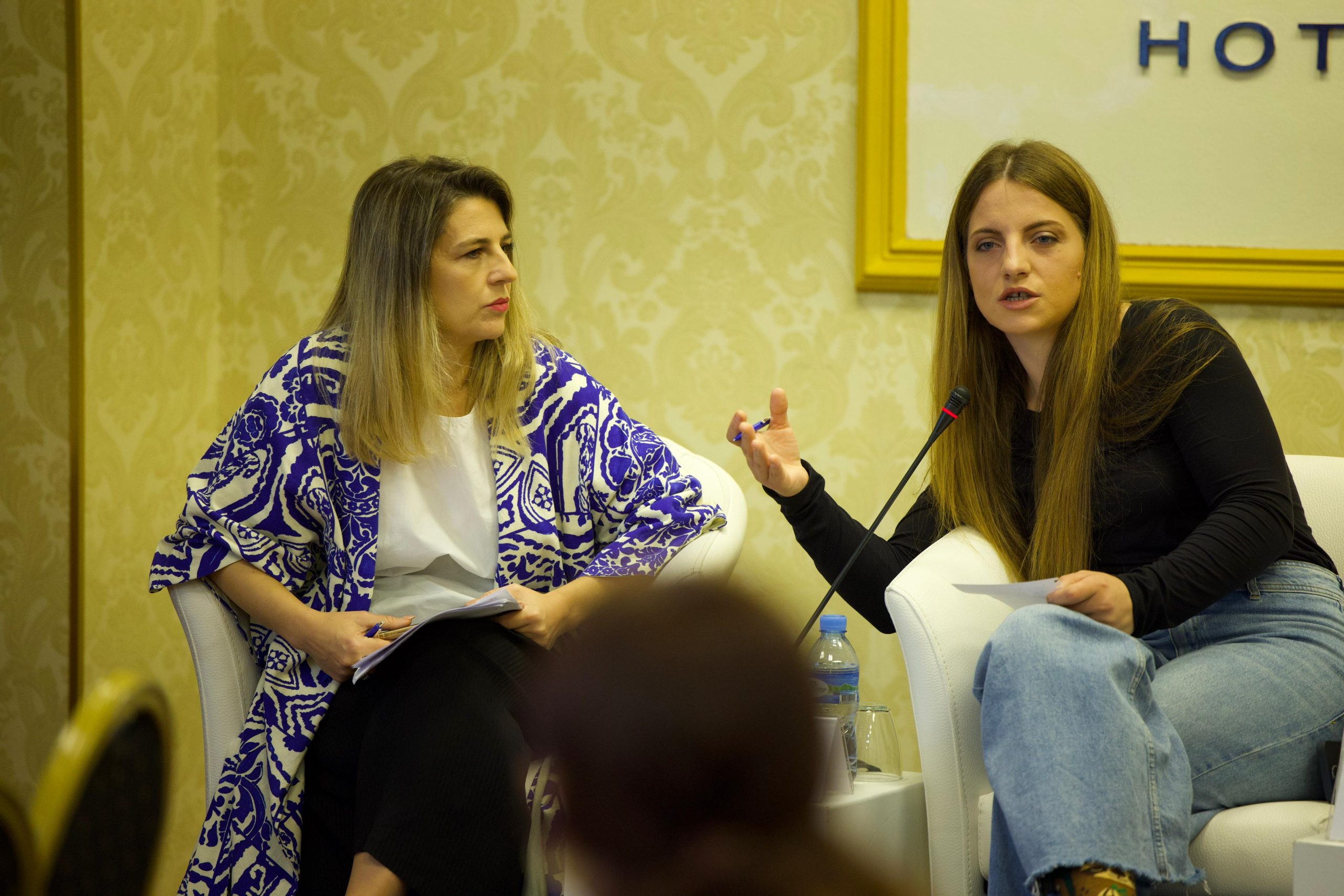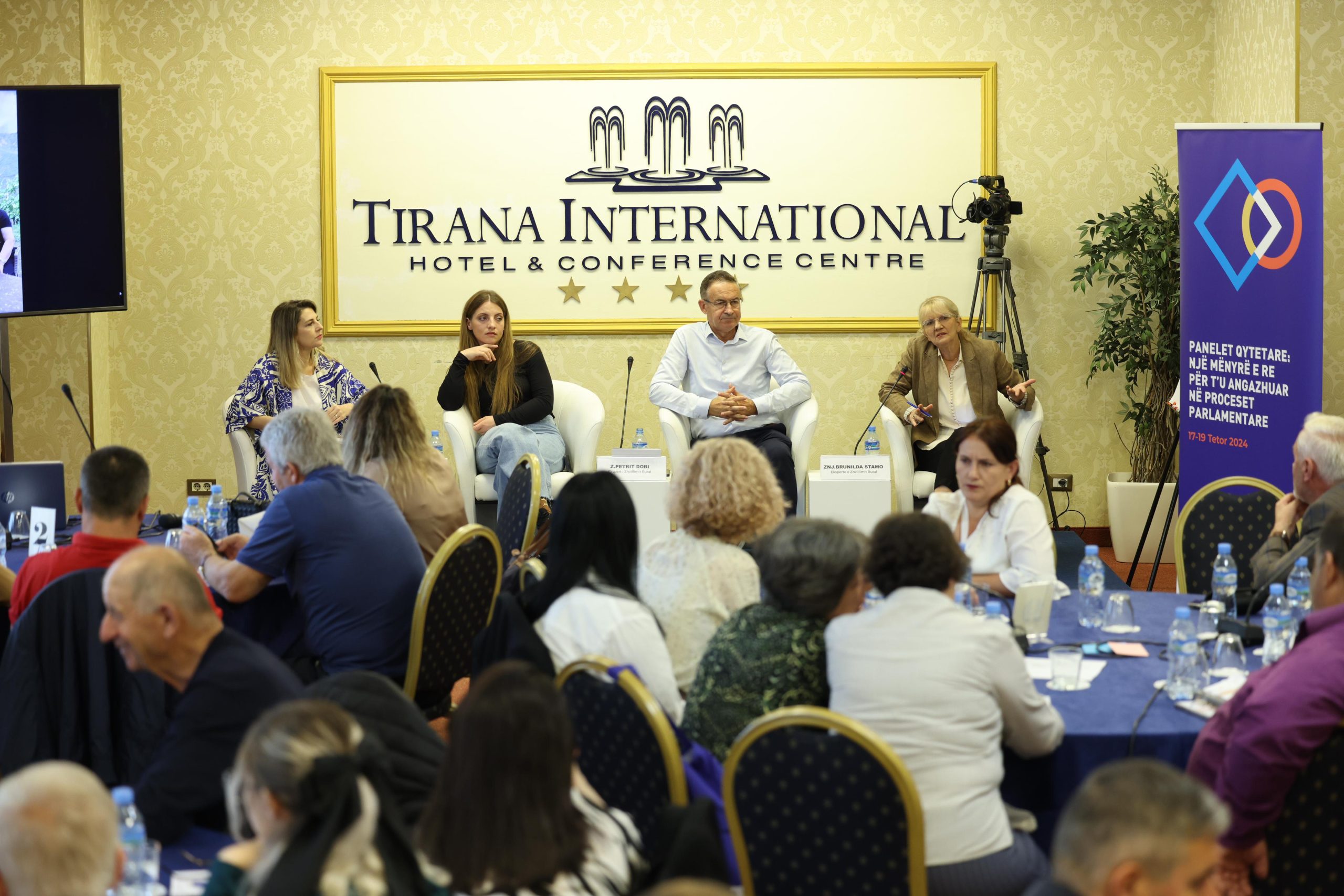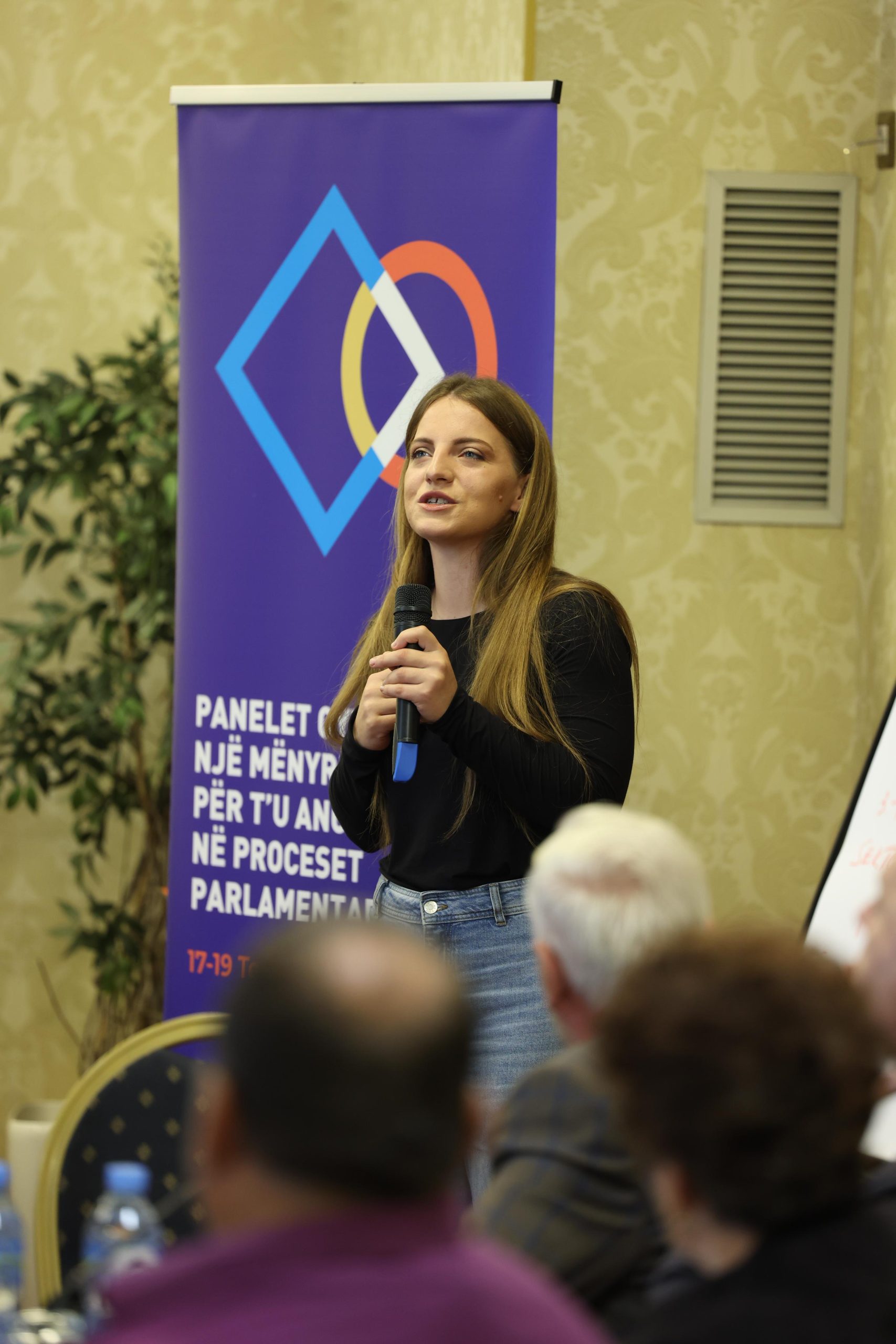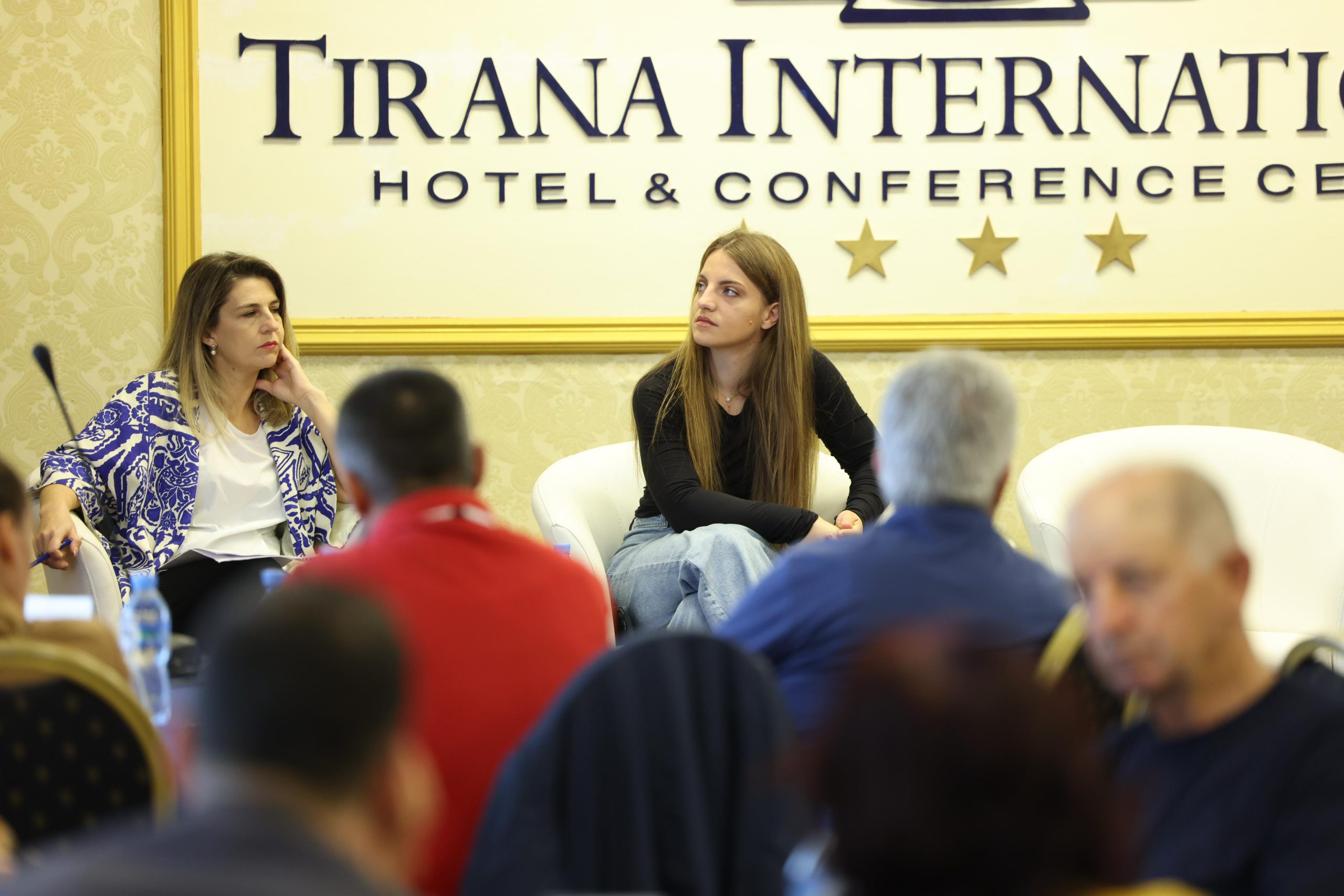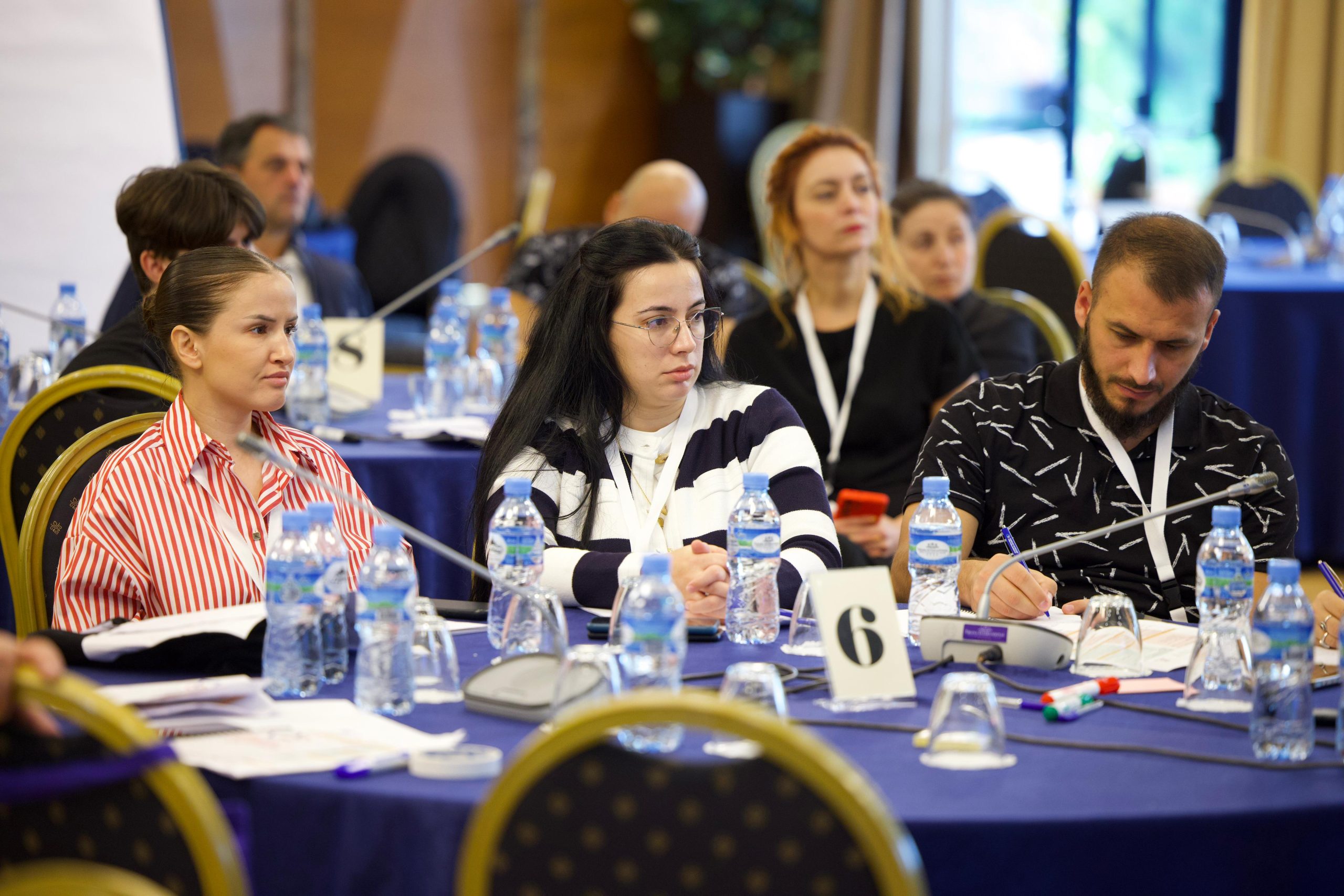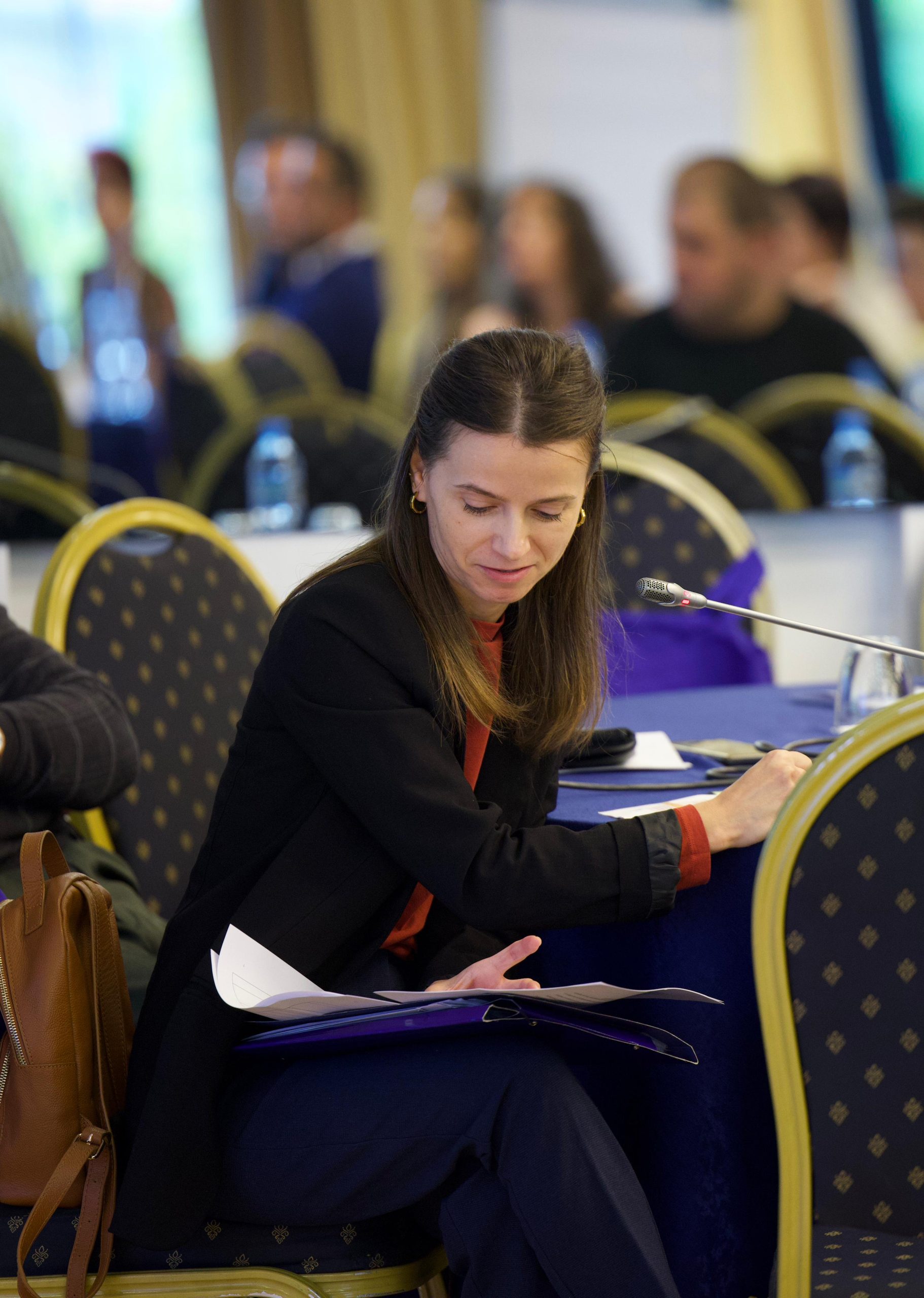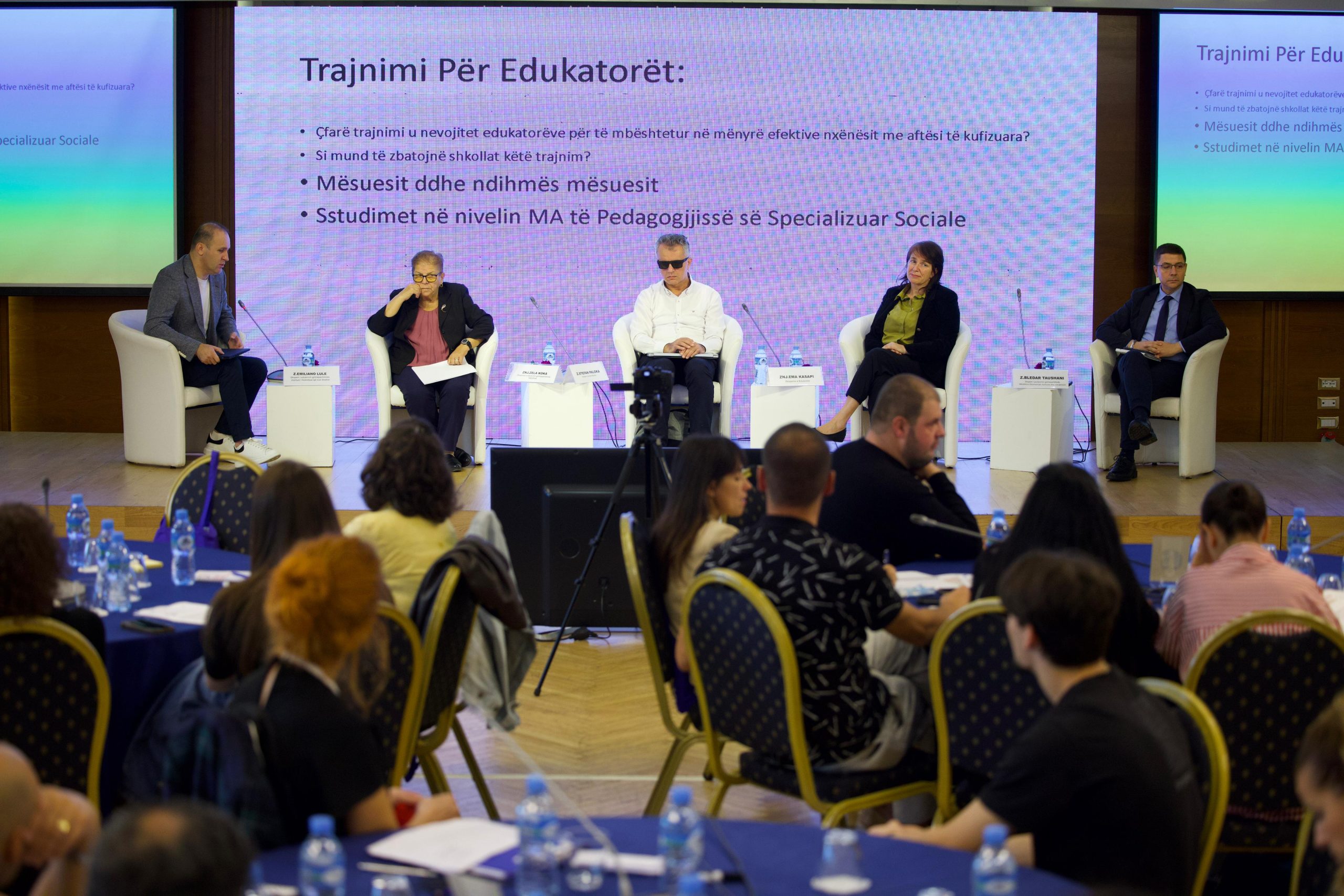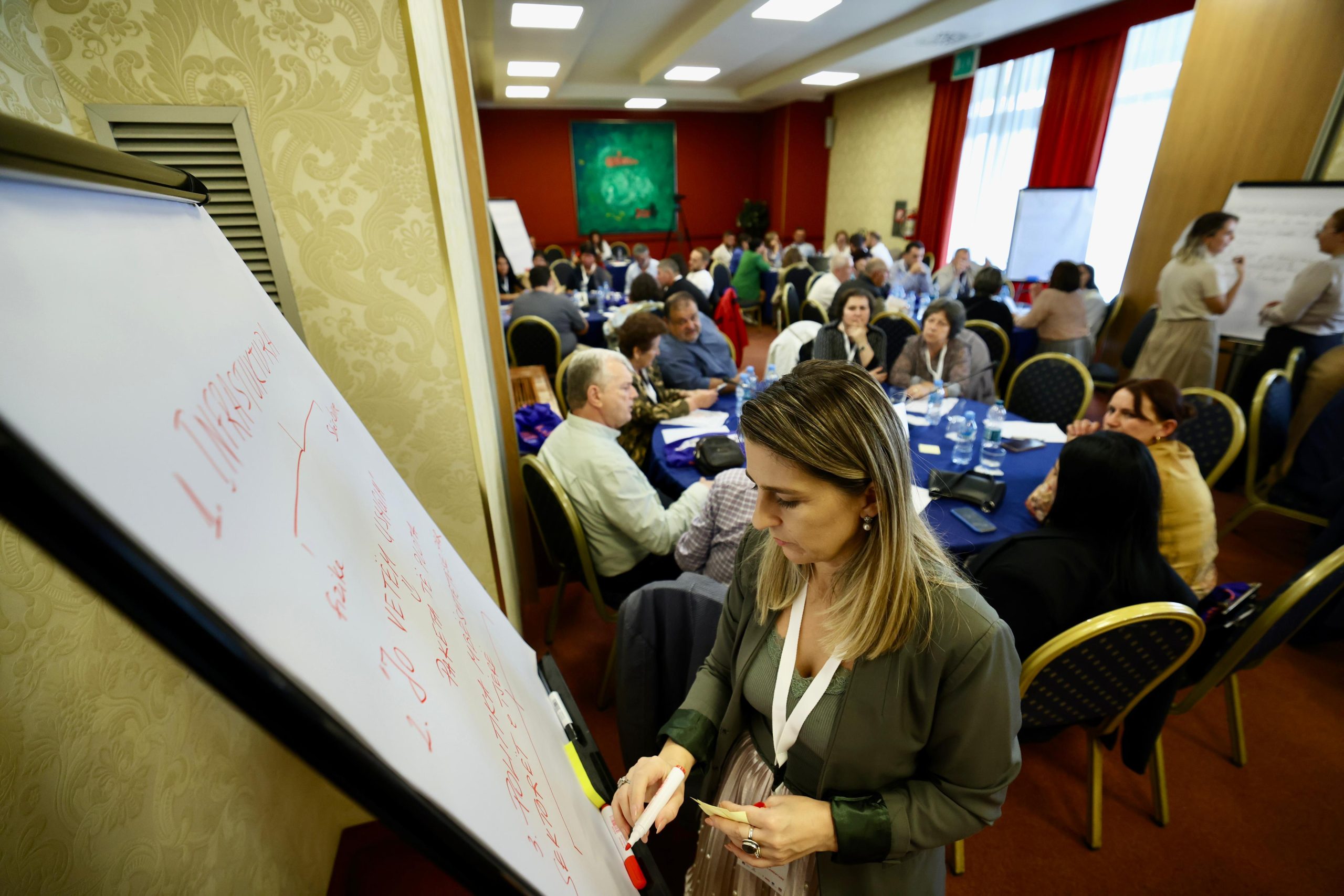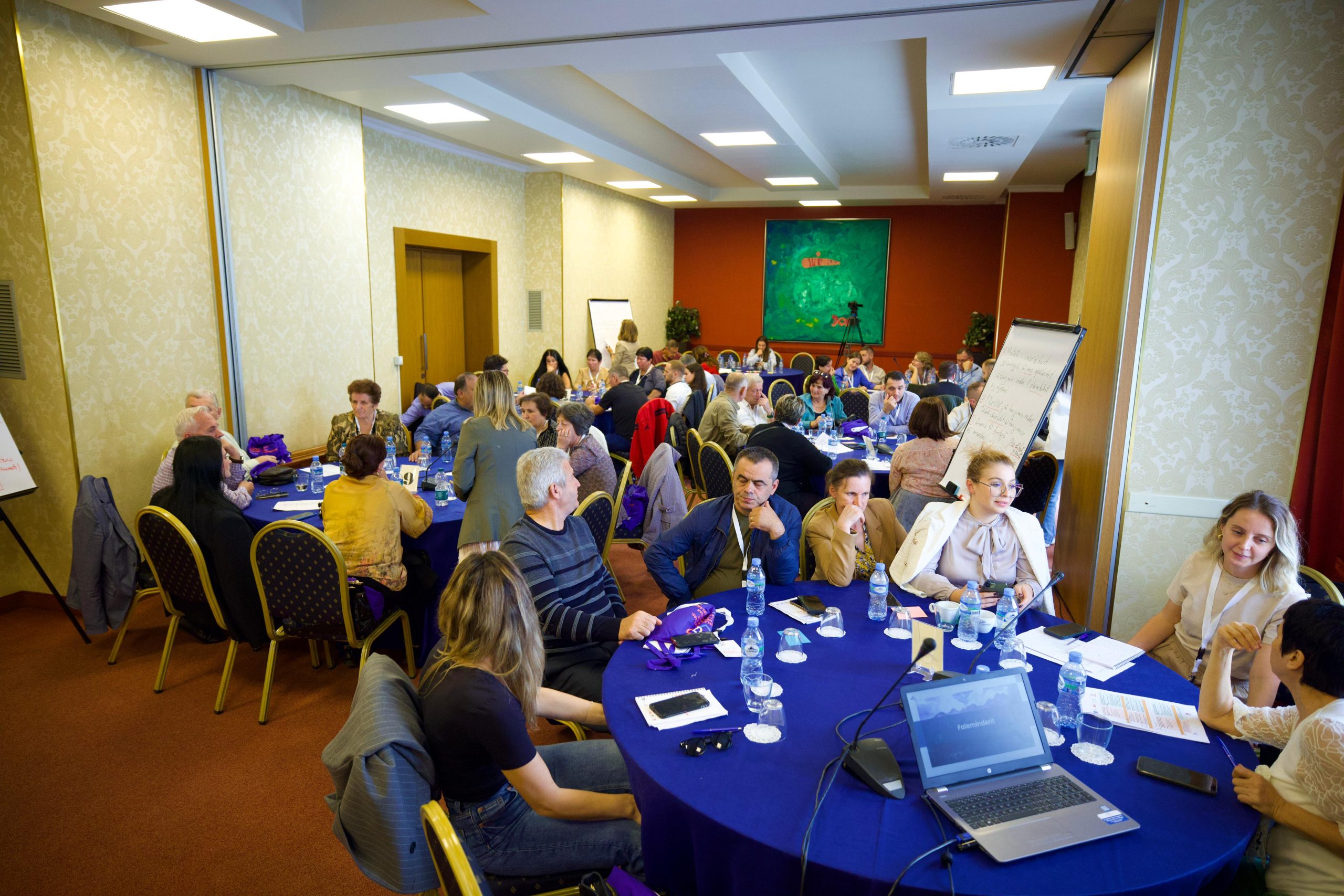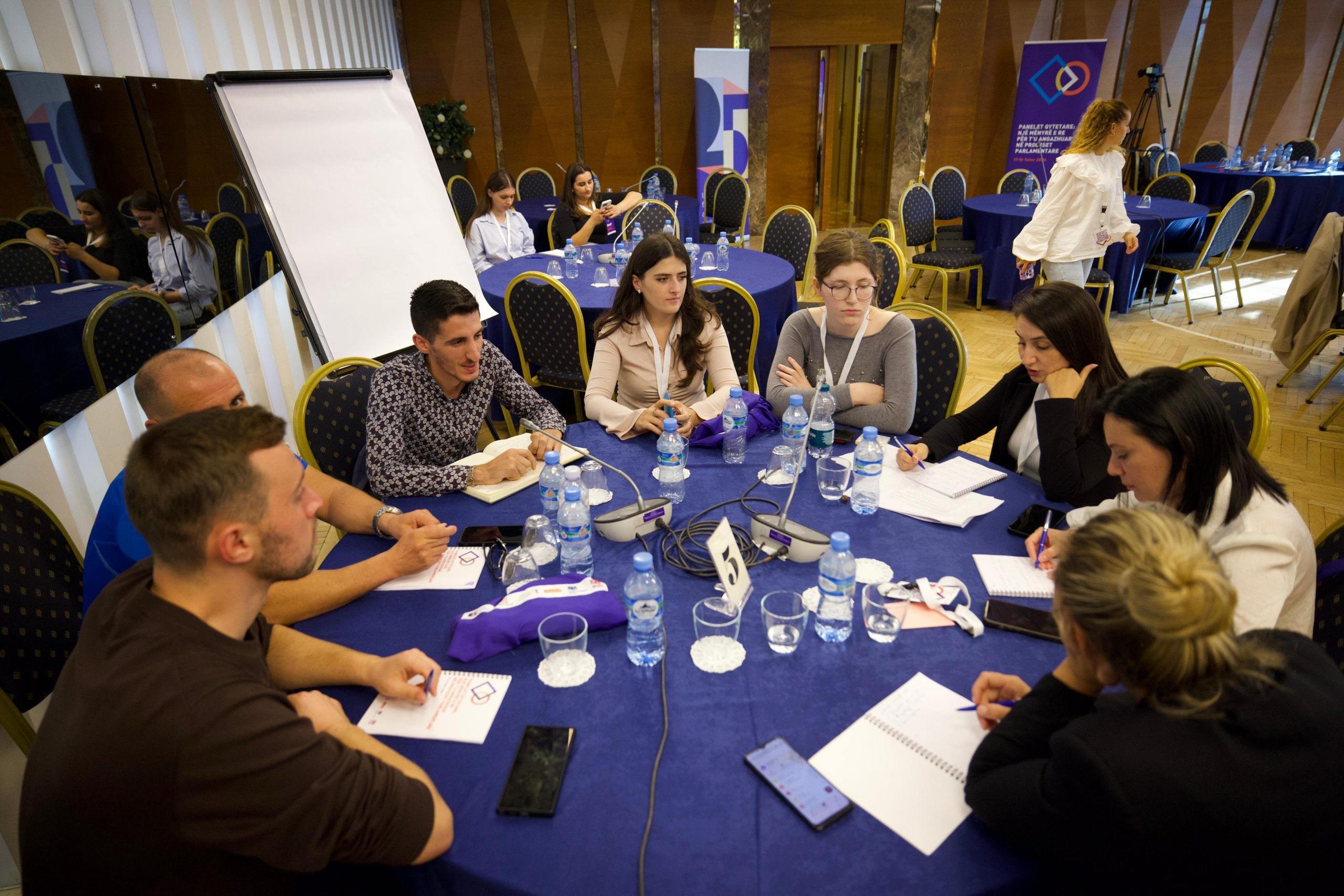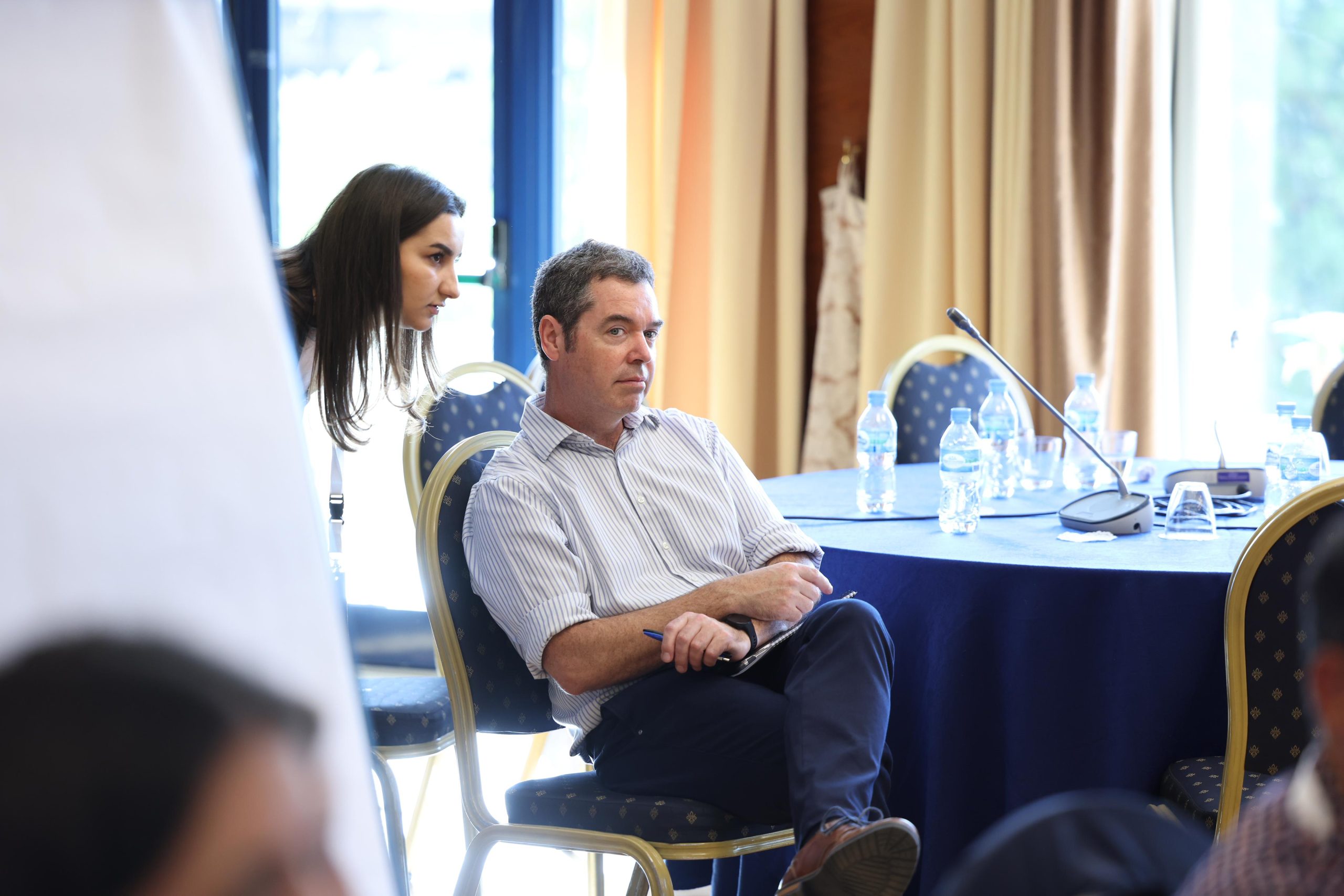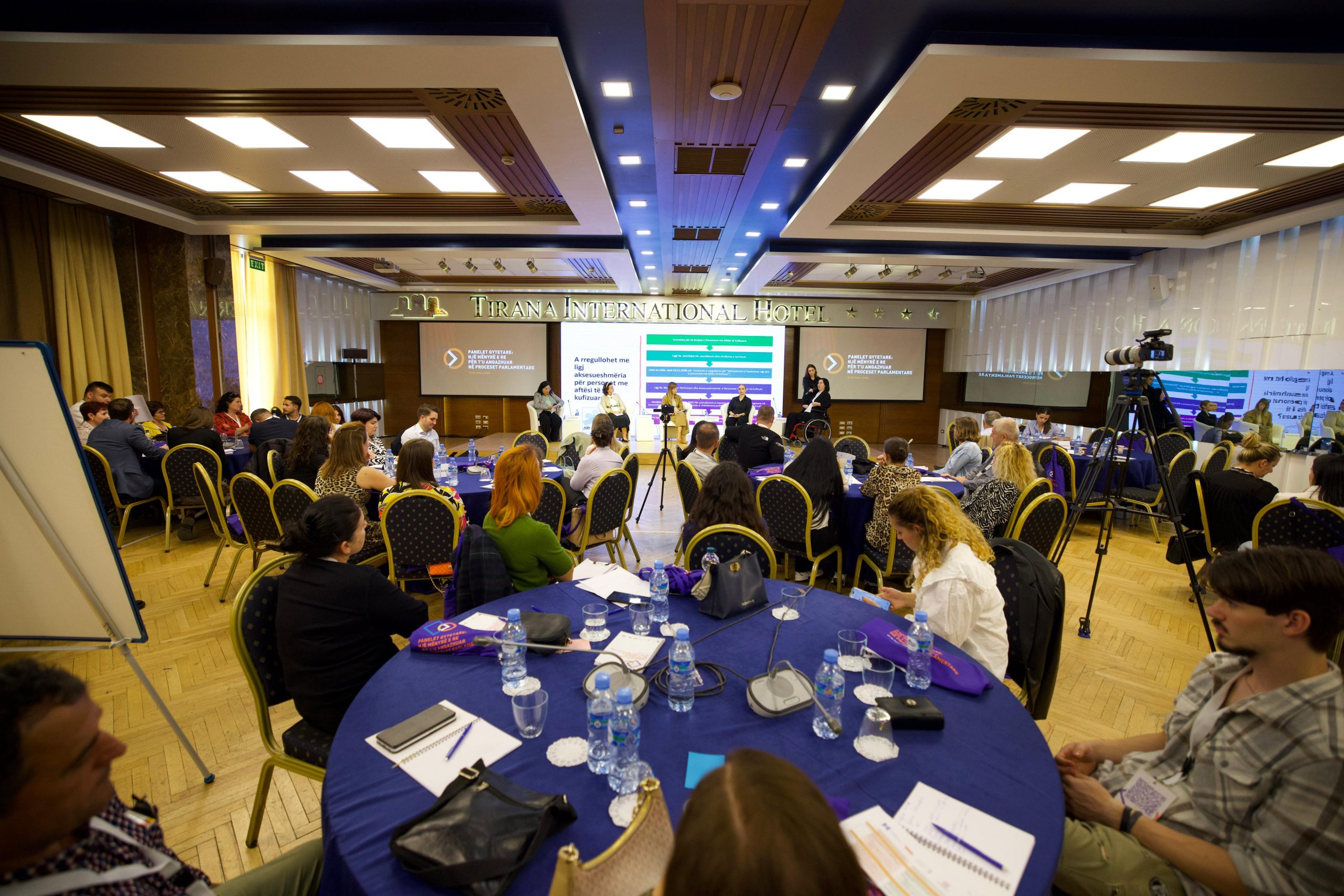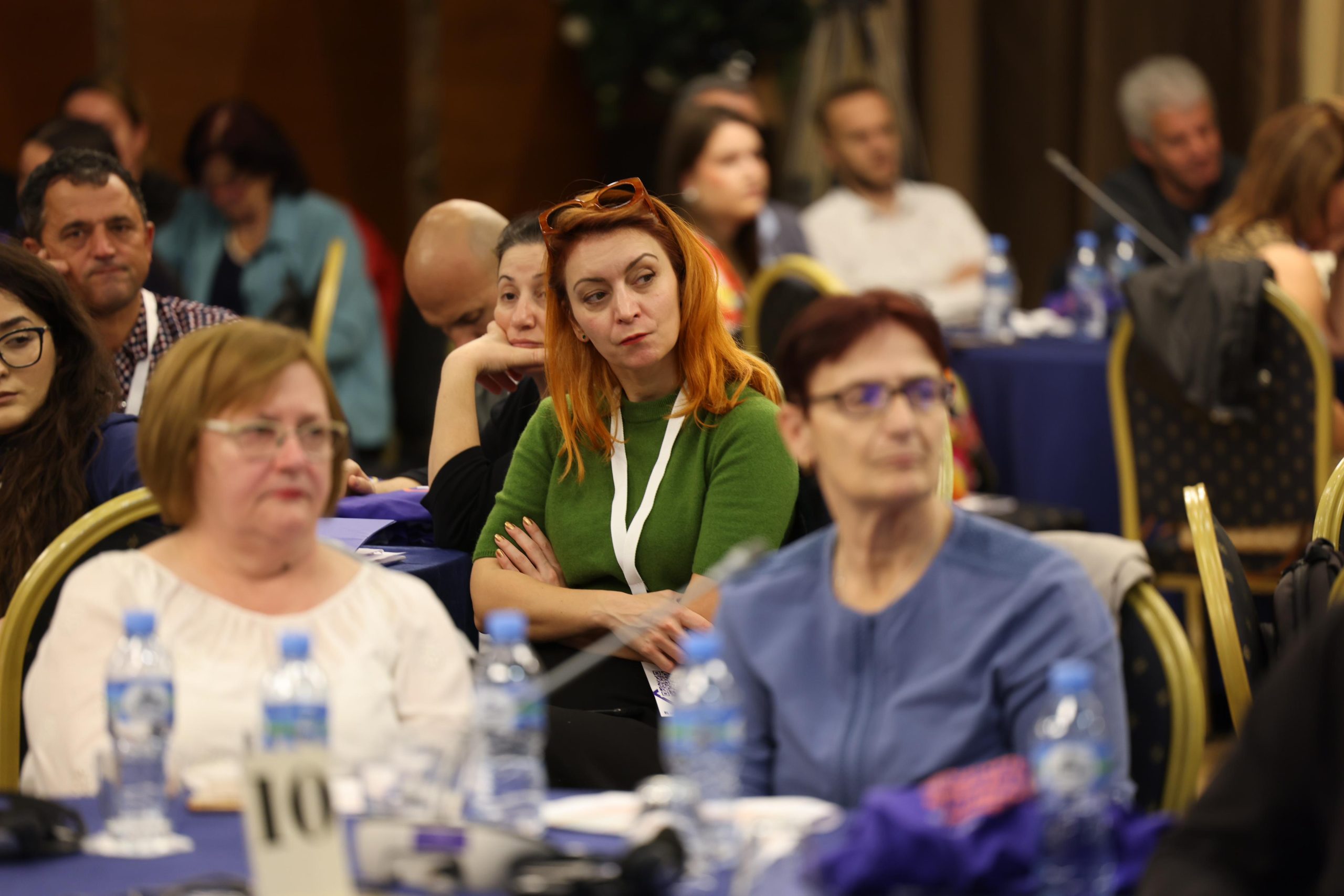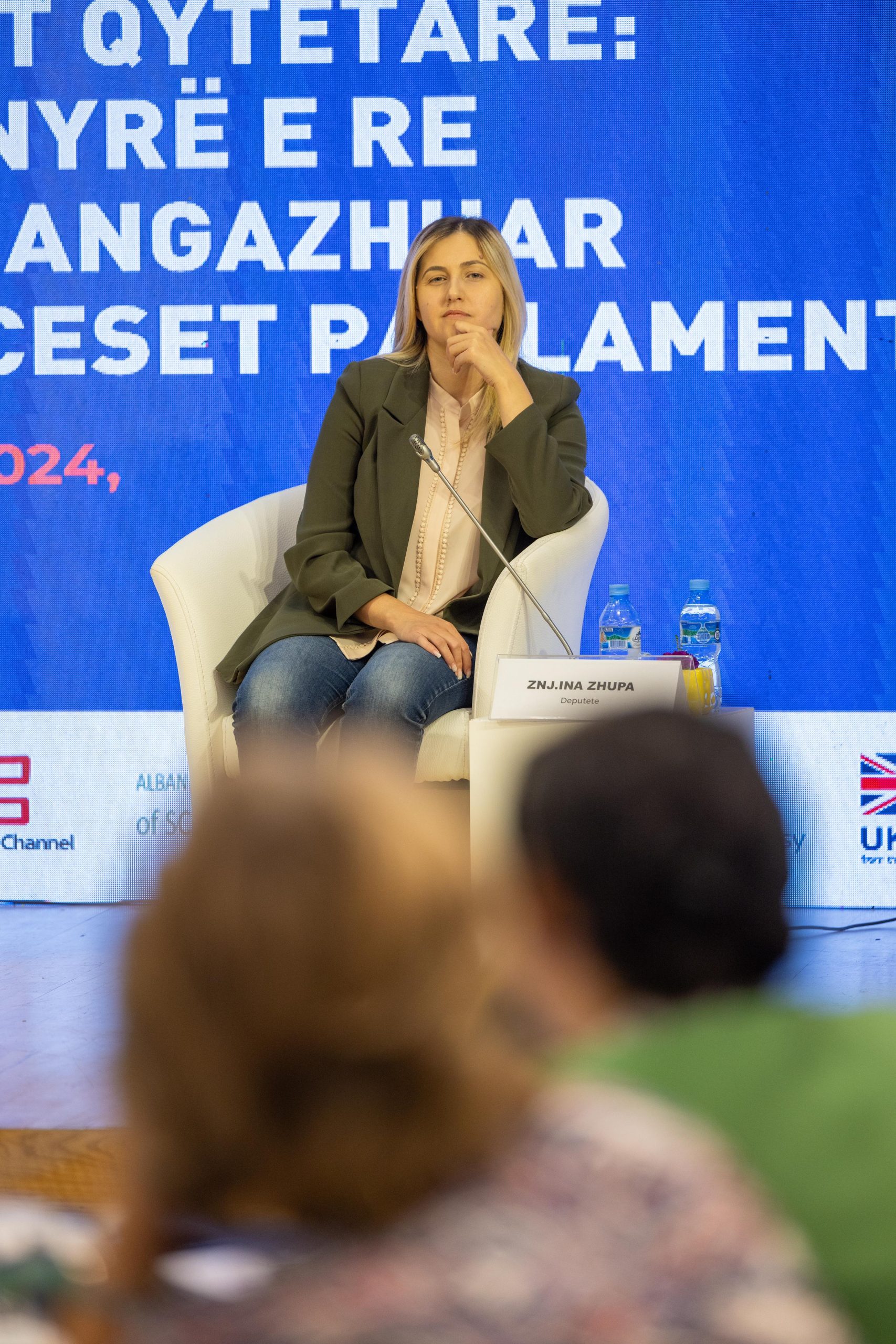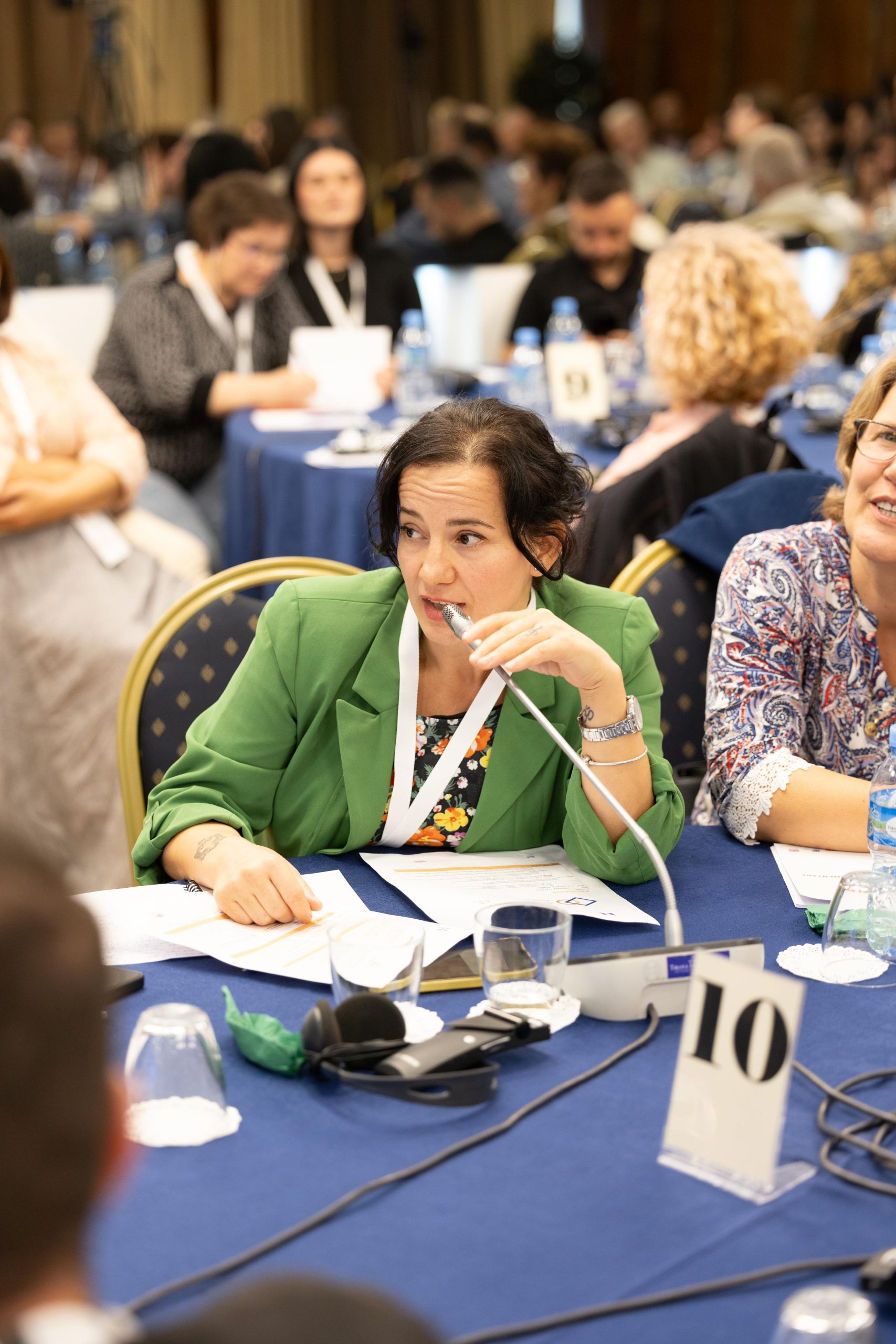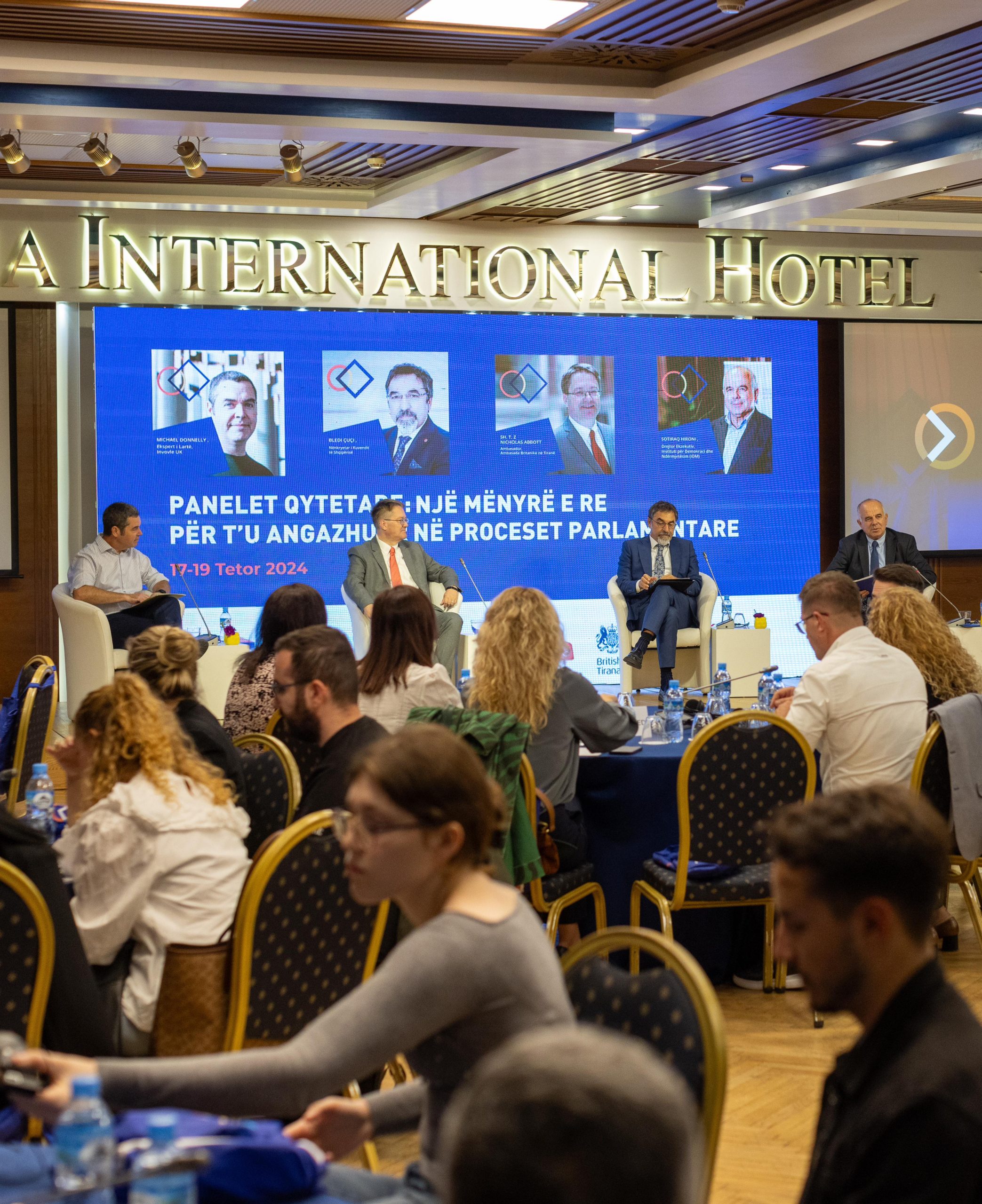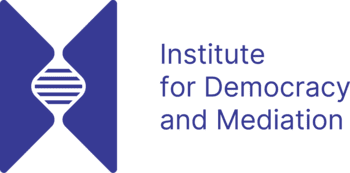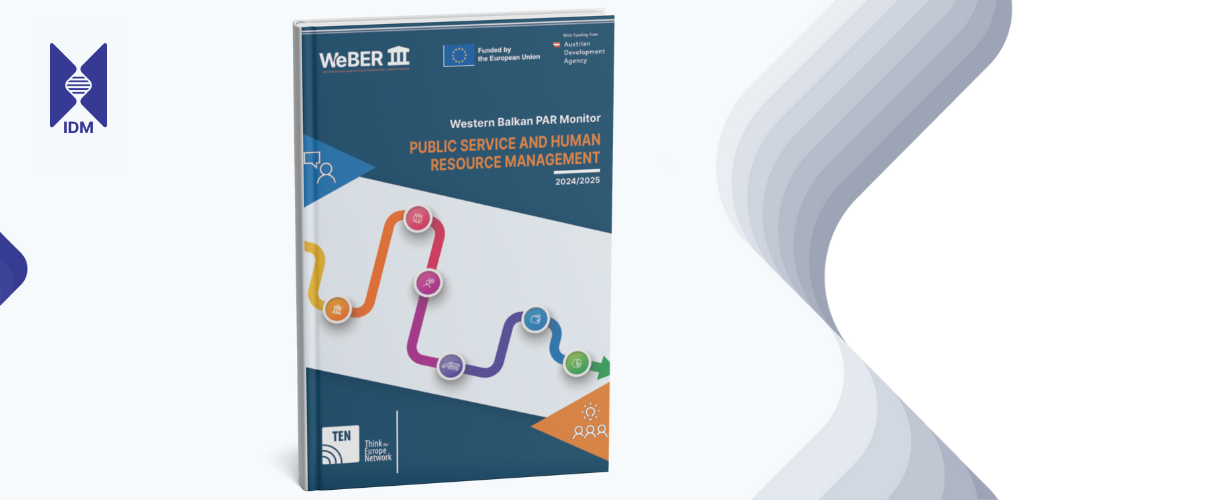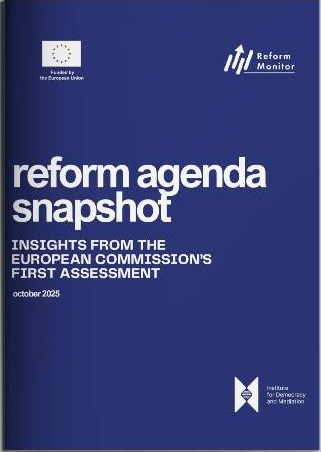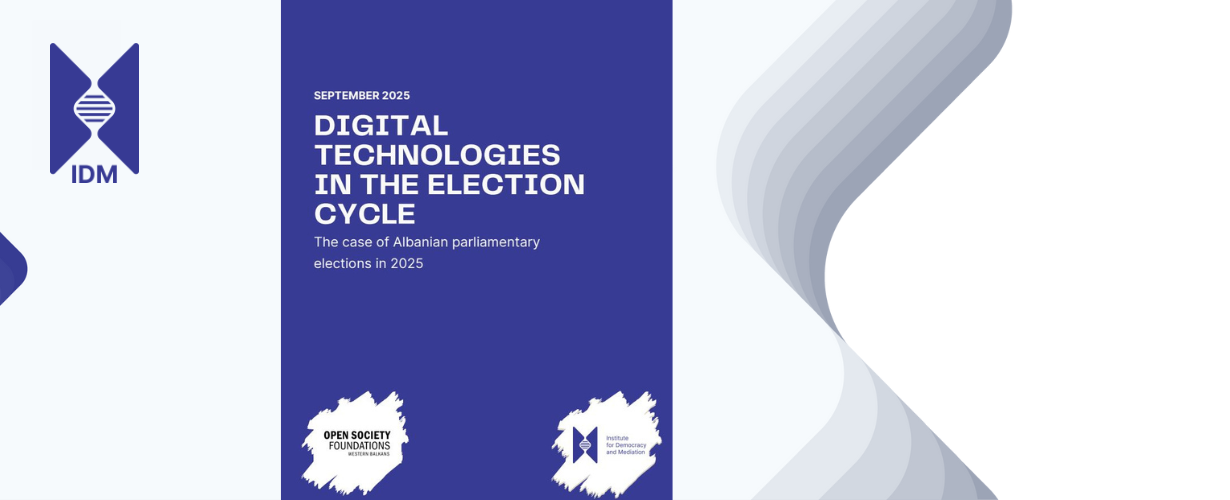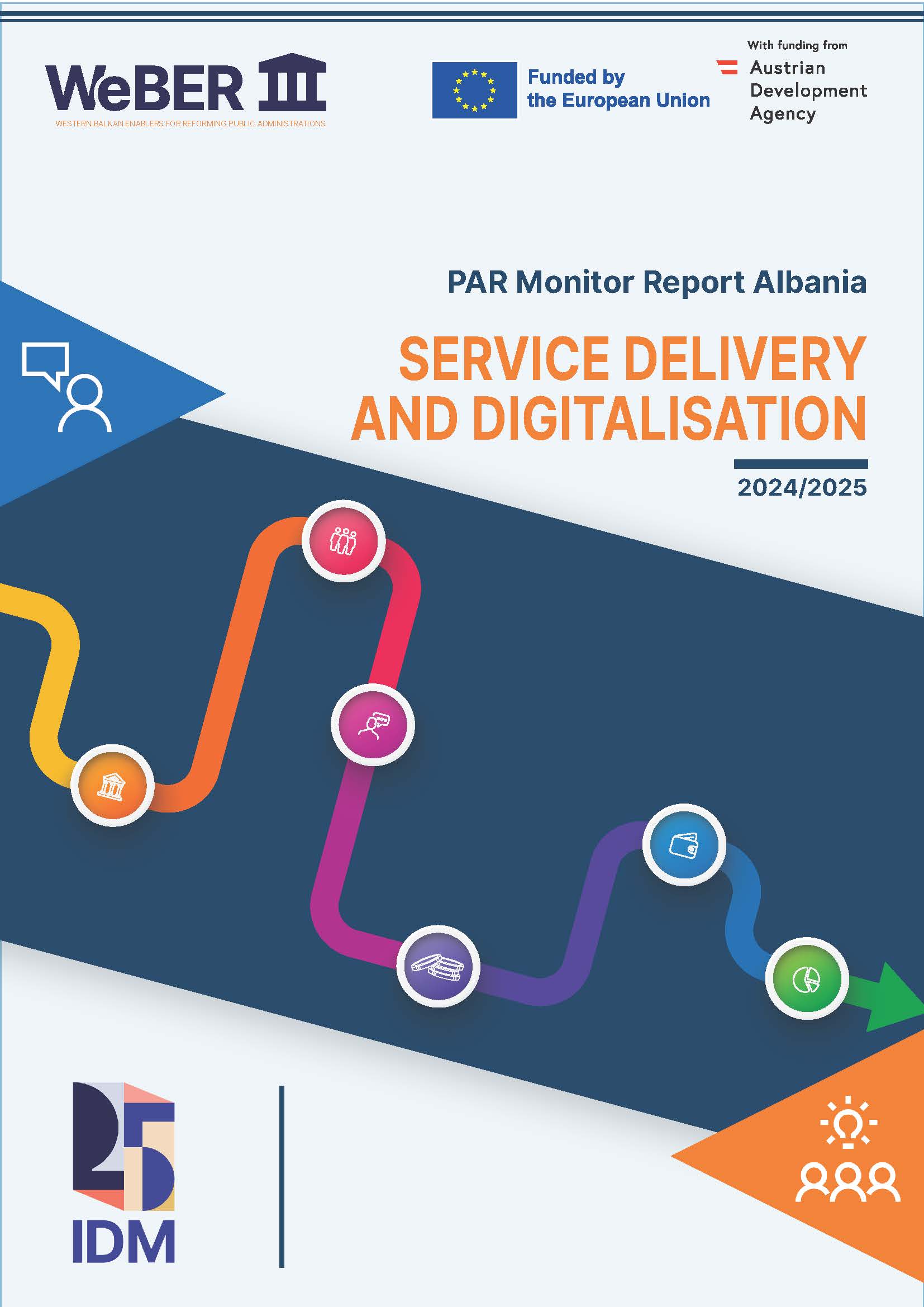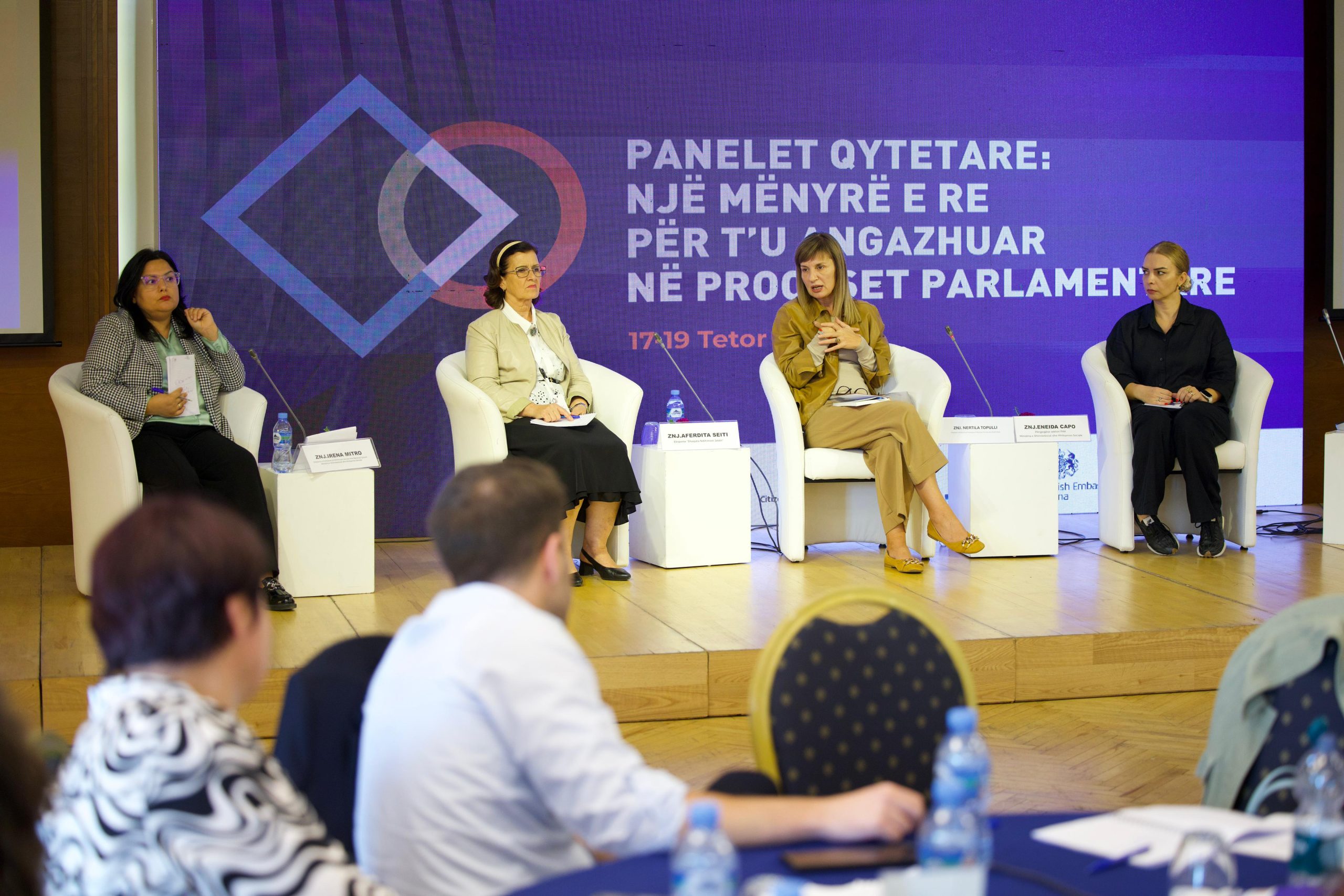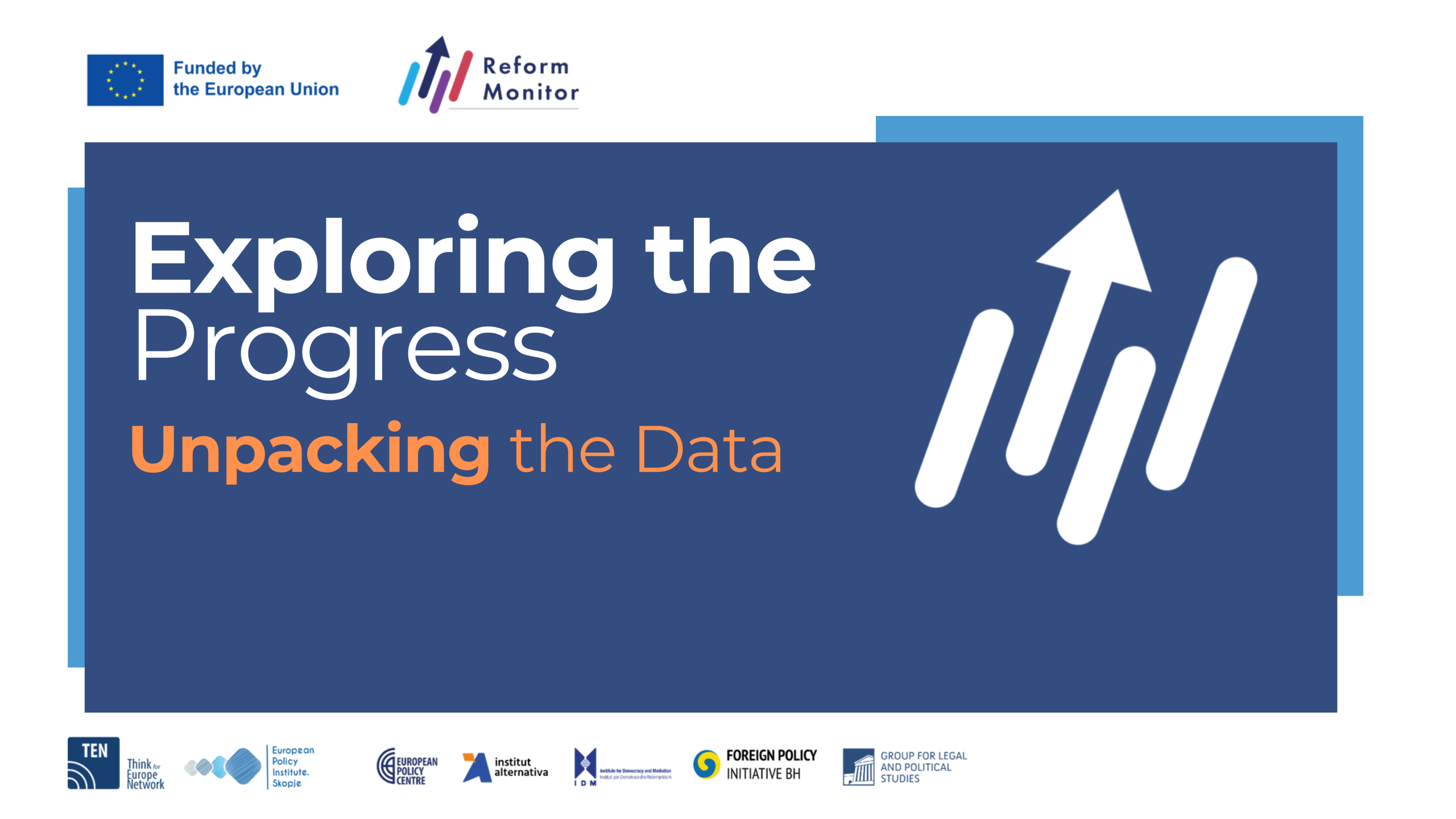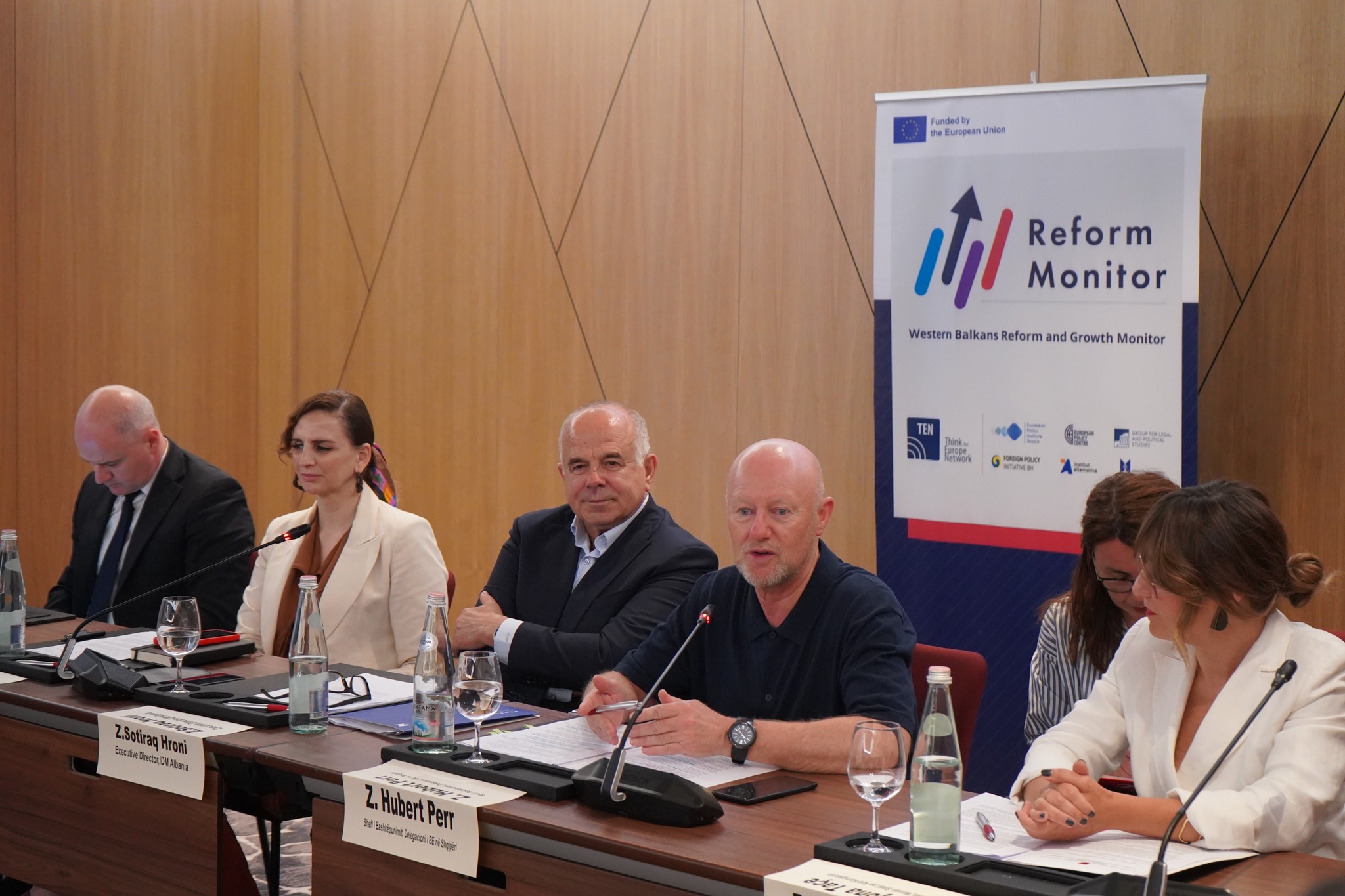Over a long weekend from October 17 to 19, 2024, in Tirana, 88 randomly selected citizens from across Albania came together to discuss the challenges and priorities of rural and mountain tourism, disability issues, and various action areas to address them.
The citizens proposed ten recommendations on each topic to help shape future draft laws and inform the initiatives of parliamentary standing committees. The recommendations and priorities developed will be compiled into a report for members of the Commission for Productive Activities, Trade, and the Environment, as well as the Commission for Labor, Social Affairs, and Health. A full list of recommendations and a detailed report from the Citizens’ Panels will be available soon. The report will outline ways to integrate deliberative activities into parliamentary processes, giving citizens a more consistent and meaningful role in shaping the legislation that impacts their lives.
What are Citizens’ Panels?
Citizens’ Panels, a form of deliberative process, have gained traction at national levels in many countries and at the EU level, involving citizens in the policy-making cycle These panels bring together a representative sample of randomly selected citizens to discuss critical issues affecting society.
In Albania, Citizens’ Panels participants engaged in discussions in five small parallel working groups and plenary sessions with experts. A facilitation team supports the process. Based on discussions, citizens make recommendations for MPs and relevant ministries to consider when defining policies and initiatives.
From October 17 to 19, 2024, the two thematic groups developed concrete recommendations on key issues related to rural and mountain tourism and disability. Around 20 field experts and over 10 trained moderators facilitated participant discussions in the Citizens’ Panels.
Participants engaged in informed discussions across six parallel deliberation sessions that addressed the following topics:
- Session 1: Economic Impact and Support for Rural and Mountain Tourism
- Session 2: Diversifying Tourism Services and Revitalizing Rural and Mountain Areas
- Session 3: Environmental Sustainability
- Session 4: Accessibility and Services for People with Disabilities
- Session 5: Inclusive Education and Employment
- Session 6: Participation in Political and Public Life
The Citizens’ Panels followed a three-step process:
- Understanding the issue – panel members listen to experts.
- Discussion – panel members carefully consider what they have heard, weighing the pros and cons of different arguments.
- Decision-making – panel members develop recommendations and/or priorities for action.
How were citizens selected?
Participants in Albania’s Citizens’ Panels are recruited through random selection from an open call for expressions of interest. Interested individuals complete a brief participation form and are contacted by telephone and email. To ensure that panels reflect the country’s socio-demographic composition, several characteristics are considered: gender, age, education level, geographic location, and occupation.
This event is part of the “Increase Parliament’s Responsiveness to Citizens’ Concerns” project, implemented by a consortium of IDM, AIS, and Citizens Channel, with financial support from the British Government.
Additional Resources
- Agenda (ENG/ALB)
- Detailed sessions Disability Issues and Rural and Mountain Tourism
